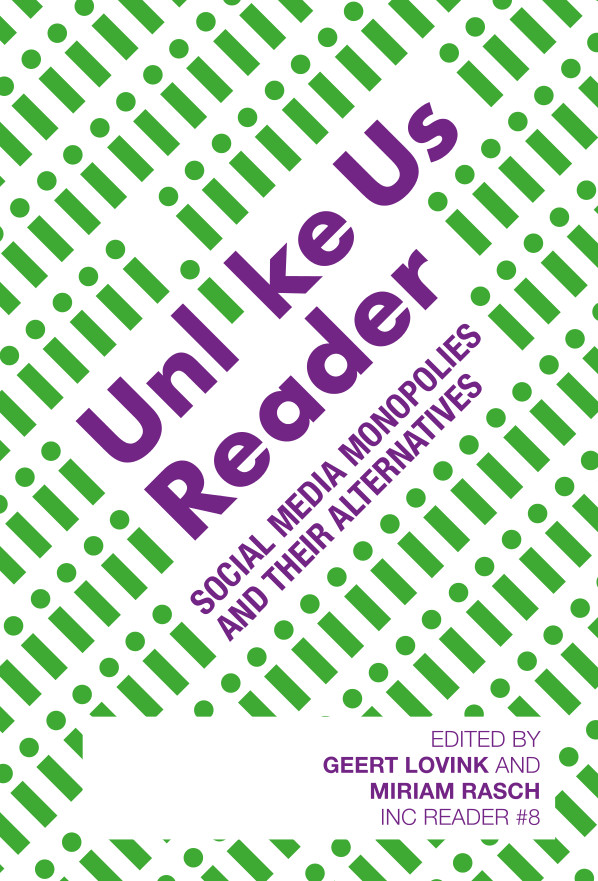Giovanni Ziccardi: Resistance, Liberation Technology and Human Rights in the Digital Age (2013)
Filed under book | Tags: · activism, censorship, crowdsourcing, cyberwar, facebook, hacking, hacktivism, human rights, internet, internet activism, liberation technologies, open data, politics, resistance, social media, surveillance, technology, transparency, twitter, wikileaks

This book explains strategies, techniques, legal issues and the relationships between digital resistance activities, information warfare actions, liberation technology and human rights. It studies the concept of authority in the digital era and focuses in particular on the actions of so-called digital dissidents. Moving from the difference between hacking and computer crimes, the book explains concepts of hacktivism, the information war between states, a new form of politics (such as open data movements, radical transparency, crowd sourcing and “Twitter Revolutions”), and the hacking of political systems and of state technologies. The book focuses on the protection of human rights in countries with oppressive regimes.
– Deals with digital resistance activities all over the world
– First book to describe political and human rights issues in Egypt, Tunisia, Cuba and Yemen
– A critical analysis of the WikiLeaks case
Publisher Springer, 2013
Volume 7 van Law, Governance and Technology series
ISBN 9400752768, 9789400752764
328 pages
via Marcell Mars via Jaromil
Geert Lovink, Miriam Rasch (eds.): Unlike Us Reader: Social Media Monopolies and Their Alternatives (2013)
Filed under book | Tags: · activism, art, facebook, floss, media theory, networks, open source, privacy, social media, web

The Unlike Us Reader offers a critical examination of social media, bringing together theoretical essays, personal discussions, and artistic manifestos. How can we understand the social media we use everyday, or consciously choose not to use? We know very well that monopolies control social media, but what are the alternatives? While Facebook continues to increase its user population and combines loose privacy restrictions with control over data, many researchers, programmers, and activists turn towards designing a decentralized future. Through understanding the big networks from within, be it by philosophy or art, new perspectives emerge.
Unlike Us is a research network of artists, designers, scholars, activists, and programmers, with the aim to combine a critique of the dominant social media platforms with work on ‘alternatives in social media’, through workshops, conferences, online dialogues, and publications. Everyone is invited to be a part of the public discussion on how we want to shape the network architectures and the future of social networks we are using so intensely.
Contributors: Solon Barocas, Caroline Bassett, Tatiana Bazzichelli, David Beer, David M. Berry, Mercedes Bunz, Florencio Cabello, Paolo Cirio, Joan Donovan, Louis Doulas, Leighton Evans, Marta G. Franco, Robert W. Gehl, Seda Gürses, Alexandra Haché, Harry Halpin, Mariann Hardey, Pavlos Hatzopoulos, Yuk Hui, Ippolita, Nathan Jurgenson, Nelli Kambouri, Jenny Kennedy, Ganaele Langlois, Simona Lodi, Alessandro Ludovico, Tiziana Mancinelli, Andrew McNicol, Andrea Miconi, Arvind Narayanan, Wyatt Niehaus, Korinna Patelis, PJ Rey, Sebastian Sevignani, Bernard Stiegler, Marc Stumpel, Tiziana Terranova, Vincent Toubiana, Brad Troemel, Lonneke van der Velden, Martin Warnke and D.E. Wittkower.
Publisher Institute of Network Cultures, Amsterdam, February 2013
INC Reader #3
Creative Commons BY-NC-SA 3.0 Unported License
ISBN 9789081857529
386 pages
via Anne Helmond
book trailer
research network
next conference (22-23 March 2013, Amsterdam)
publisher
PDF
View online (Issuu.com)
Alexander Halavais: Search Engine Society (2008–)
Filed under book | Tags: · attention, attention economy, censorship, democracy, facebook, google, internet, knowledge, pagerank, privacy, search, web

“Search engines have become a key part of our everyday lives. Yet while much has been written about how to use search engines and how they can be improved, there has been comparatively little exploration of what the social and cultural effects might be. Like all technologies, search engines exist within a larger political, cultural, and economic environment. This volume aims to redress this balance and to address crucial questions such as:
* How have search engines changed the way we organize our thoughts about the world, and how we work?
* What are the ‘search engine wars’, what do they portend for the future of search, and who wins or loses?
* To what extent does political control of search engines, or the political influence of search engines, affect how they are used, misused, and regulated?
* Does the search engine help shape our identities and interactions with others, and what implications does this have for privacy?
Informed members of the information society must understand the social contexts in which search engines have been developed, what that development says about us as a society, and the role of the search engine in the global information environment. This book provides the perfect starting point.”
Publisher Polity, 2008
Digital Media and Society series
ISBN 0745642152, 9780745642154
196 pages
PDF (updated on 2019-12-5)
EPUB (2nd ed., 2017, added on 2019-12-5)

